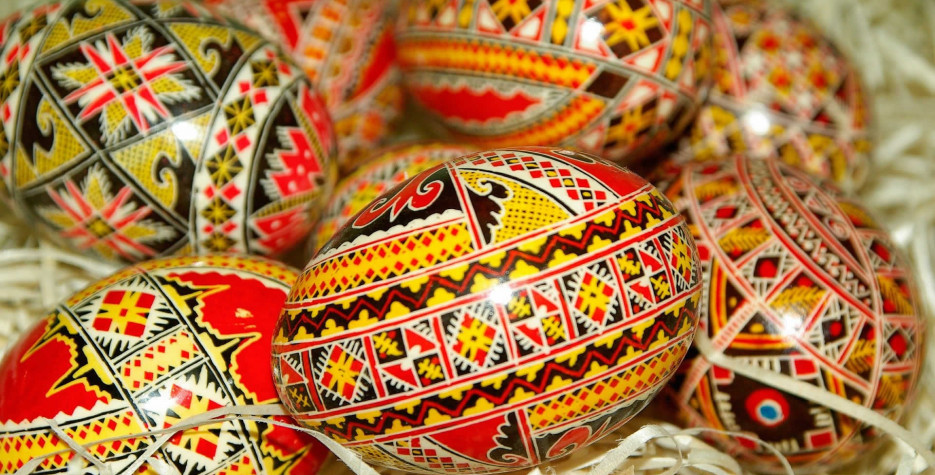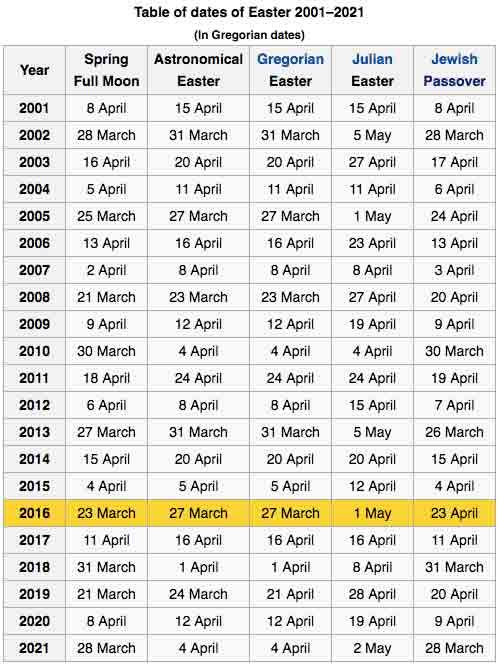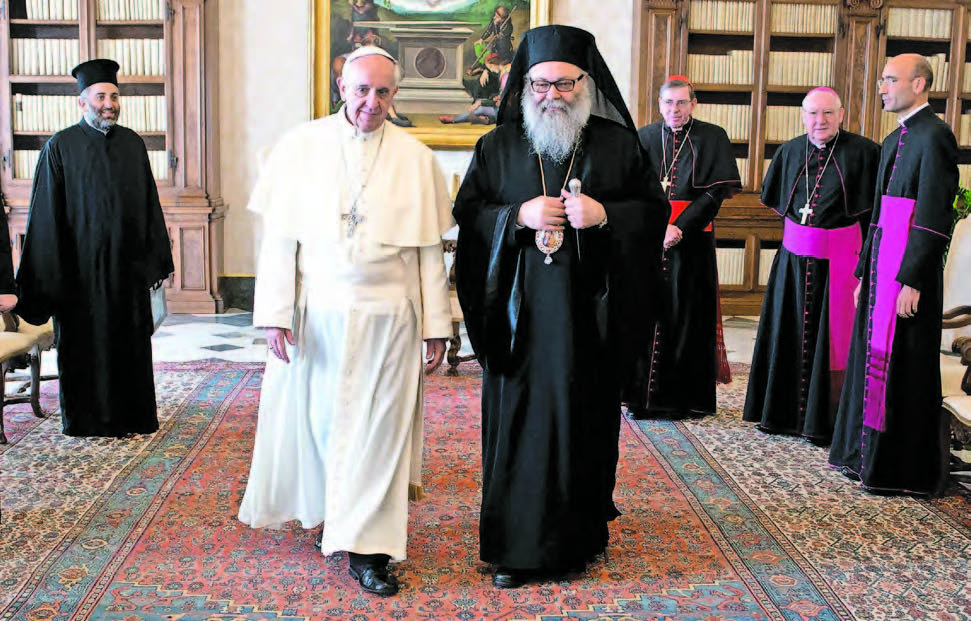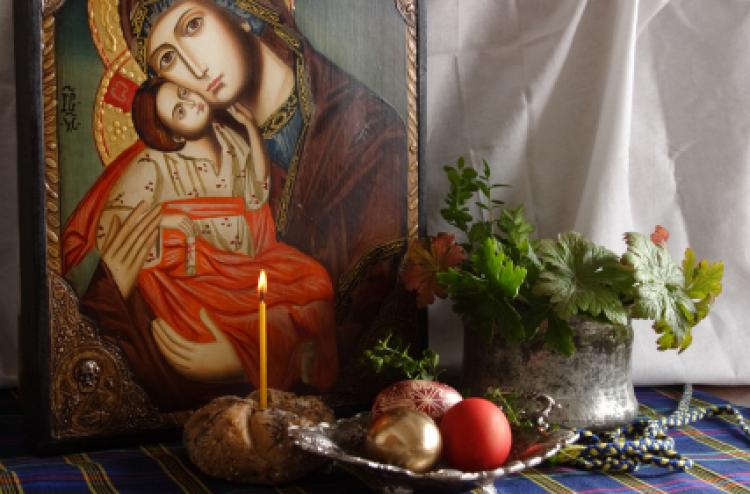A Comparative Look at Easter 2025: Western and Orthodox Traditions
A Comparative Look at Easter 2025: Western and Orthodox Traditions
Introduction
In this auspicious occasion, we are delighted to delve into the intriguing topic related to A Comparative Look at Easter 2025: Western and Orthodox Traditions. Let’s weave interesting information and offer fresh perspectives to the readers.
Table of Content

A Comparative Look at Easter 2025: Western and Orthodox Traditions
Easter, a celebration of the resurrection of Jesus Christ, is a pivotal event in the Christian calendar. While the core meaning remains consistent across denominations, the date of Easter observance varies between Western and Eastern Christian traditions. This divergence, rooted in historical and theological differences, leads to two distinct Easter celebrations: Western Easter and Orthodox Easter.
Understanding the Date Discrepancies
The discrepancy in Easter dates stems from the different methods used to calculate the date.
-
Western Easter: Celebrated by the Roman Catholic Church, Protestant denominations, and other Western Christian groups, follows the Gregorian calendar and a complex set of rules. It falls on the first Sunday after the first full moon on or after the vernal equinox (March 20th or 21st).
-
Orthodox Easter: Observed by the Eastern Orthodox Church and several Eastern Catholic churches, adheres to the Julian calendar, which is 13 days behind the Gregorian calendar. This calendar discrepancy, coupled with a different method of calculating the full moon, often leads to a difference of one or more weeks between Western and Orthodox Easter dates.
Easter 2025: A Tale of Two Dates
In 2025, Western Easter falls on Sunday, April 20th. Orthodox Easter, however, will be celebrated on Sunday, April 27th. This one-week difference highlights the distinct calendrical systems and Easter calculations employed by the two traditions.
Beyond the Date: Exploring the Significance of Easter
While the date may differ, the core meaning of Easter remains universal: the triumph of life over death, hope over despair, and faith over doubt. This message resonates deeply with Christians across denominations, fostering a sense of community and shared spiritual experience.
The Importance of Easter:
-
Celebrating the Resurrection: Easter is a celebration of the resurrection of Jesus Christ, a central tenet of Christian faith. This event signifies the victory of life over death, offering hope and reassurance to believers.
-
Renewal and Rebirth: Easter symbolizes renewal and rebirth, marking the arrival of spring and the promise of new beginnings. This symbolism resonates with individuals seeking a fresh start or a renewed sense of purpose.
-
Community and Fellowship: Easter gatherings foster a sense of community and fellowship among believers. Church services, family gatherings, and community events provide opportunities for connection and shared celebration.
Orthodox Easter: A Unique Perspective
Orthodox Easter, often referred to as "Pascha," is celebrated with great fervor and solemnity. This celebration is marked by a unique set of traditions and practices, including:
-
The Paschal Vigil: This all-night service, culminating in the chanting of "Christos Anesti" (Christ is Risen!), is a powerful and moving experience.
-
The Red Eggs: Dyed red to symbolize the blood of Christ, these eggs are exchanged as a symbol of life and resurrection.
-
The Paschal Feast: A traditional meal featuring lamb, bread, and wine, is enjoyed with family and friends.
FAQs about Easter 2025:
Q: Why is there a difference between Western and Orthodox Easter dates?
A: The difference stems from the use of different calendars and methods for calculating the full moon. The Western Church uses the Gregorian calendar and a calculation based on the vernal equinox, while the Orthodox Church uses the Julian calendar and a different lunar calculation.
Q: What are the key differences between Western and Orthodox Easter celebrations?
A: While the core meaning of Easter remains the same, the celebrations differ in their specific traditions and rituals. Orthodox Easter features a unique Paschal Vigil service, the exchange of red eggs, and a traditional Paschal feast.
Q: How can I learn more about Easter traditions?
A: Visiting local churches, attending Easter services, and engaging with online resources can provide valuable insights into the diverse traditions surrounding Easter.
Tips for Celebrating Easter 2025:
-
Attend Easter services: Whether at a Western or Orthodox church, attending a service can deepen your understanding and appreciation of the holiday.
-
Engage in community activities: Participating in Easter egg hunts, volunteering at local charities, or attending community events can enhance the celebratory spirit.
-
Reflect on the meaning of Easter: Take time for personal reflection on the themes of resurrection, renewal, and hope.
-
Share the message of Easter: Spread the message of hope and love by sharing the significance of Easter with friends and family.
Conclusion
Easter 2025, with its distinct Western and Orthodox dates, serves as a reminder of the diverse ways in which Christians celebrate this pivotal event. While the dates may differ, the core message of Easter remains universal: the triumph of life over death, hope over despair, and faith over doubt. This enduring message continues to inspire and uplift Christians worldwide, fostering a sense of community and shared spiritual experience.








Closure
Thus, we hope this article has provided valuable insights into A Comparative Look at Easter 2025: Western and Orthodox Traditions. We hope you find this article informative and beneficial. See you in our next article!